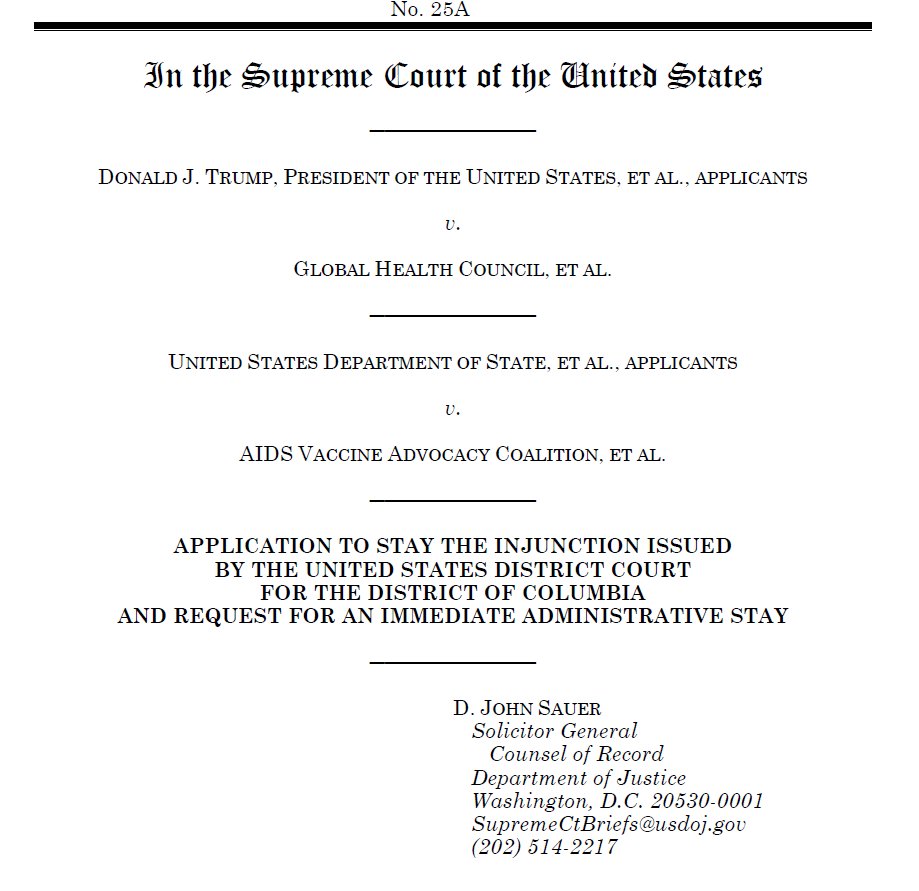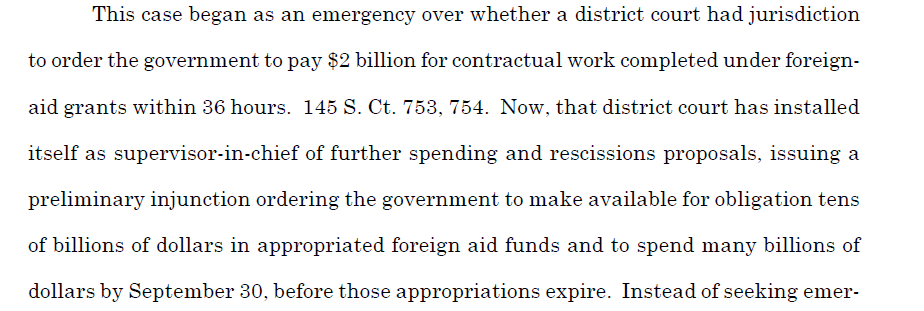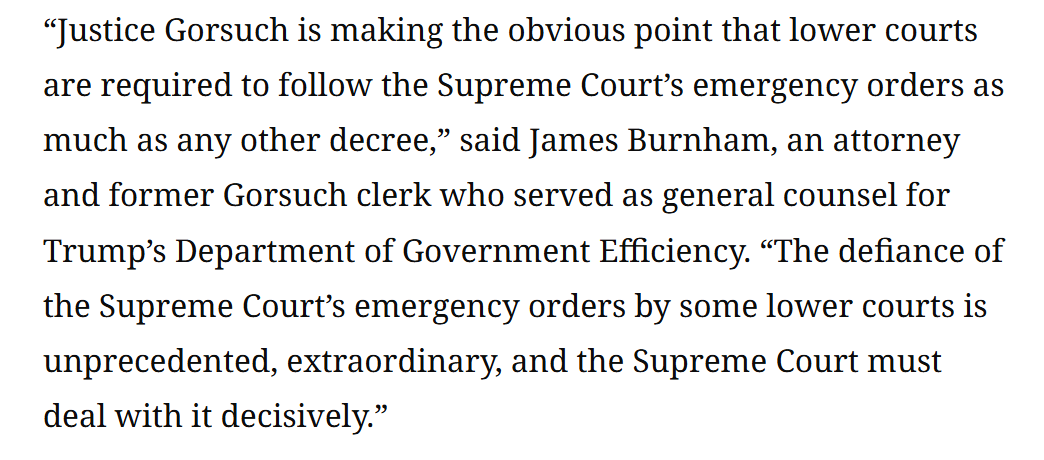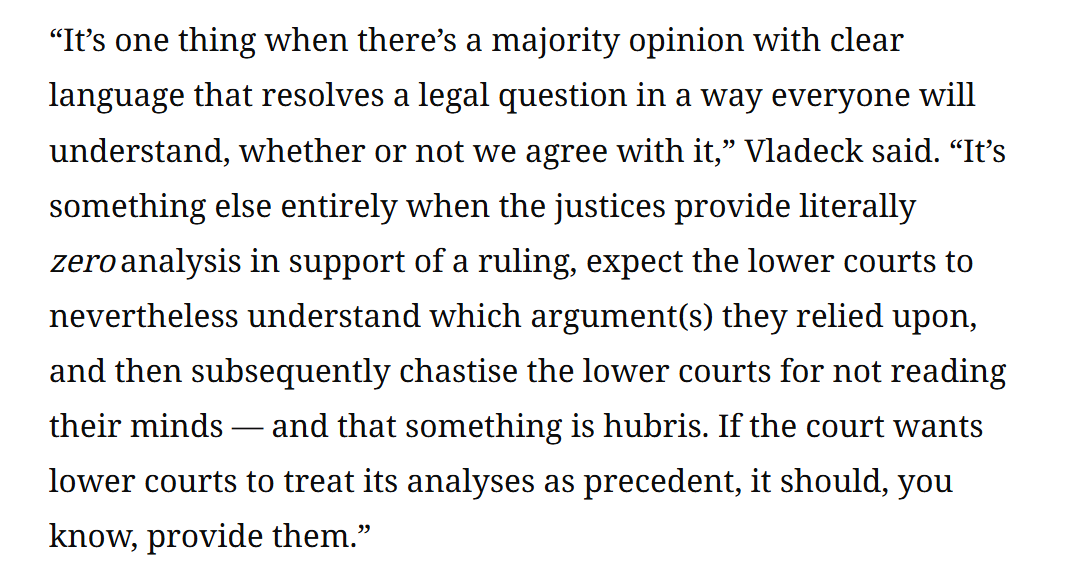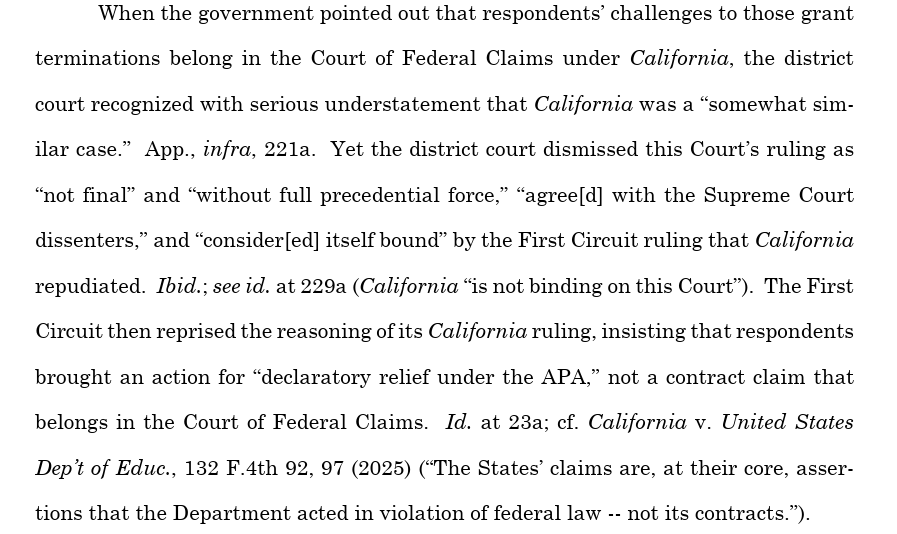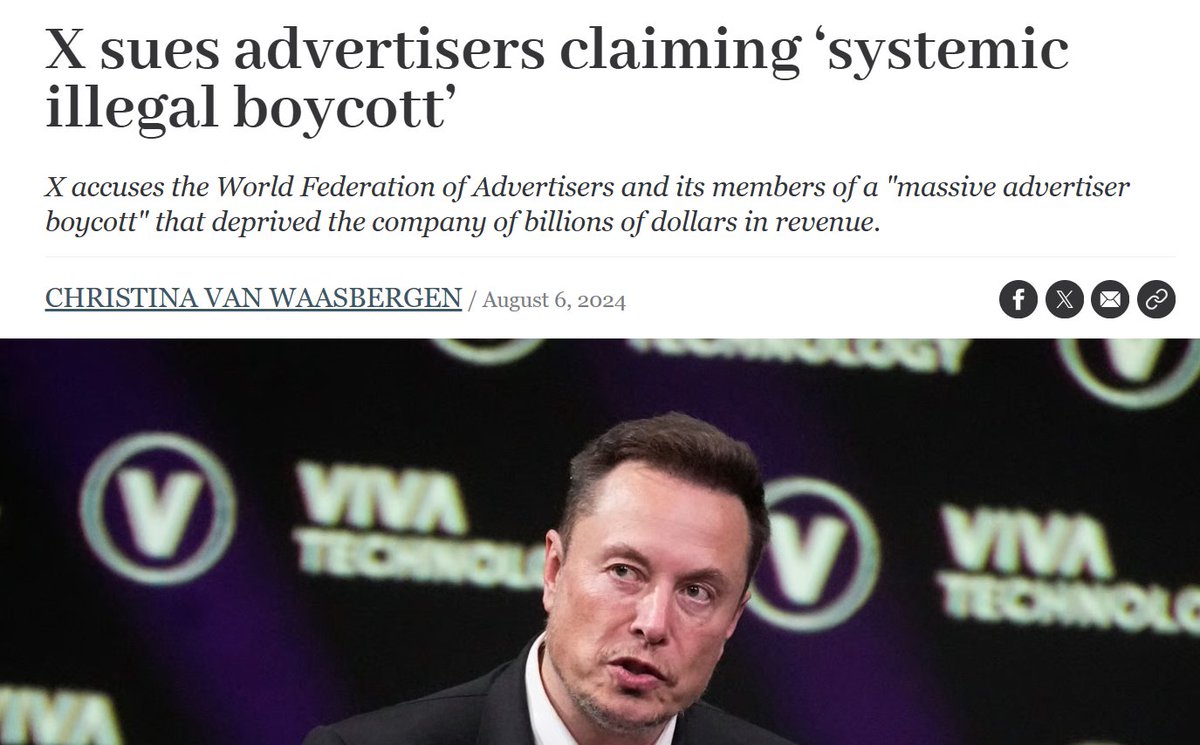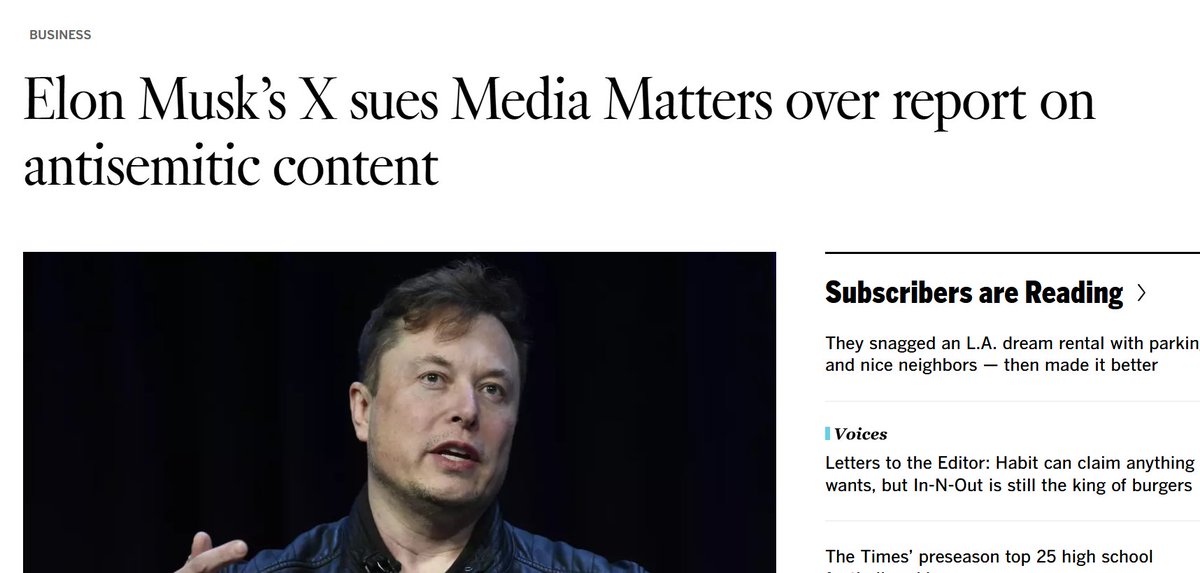As others have noted, @AGPamBondi, SG Sauer, and @TheJusticeDept sought certiorari today in the Supreme Court on tariffs and seek a quick argument and resolution. Want to quickly flag a few of their arguments. 1/ 
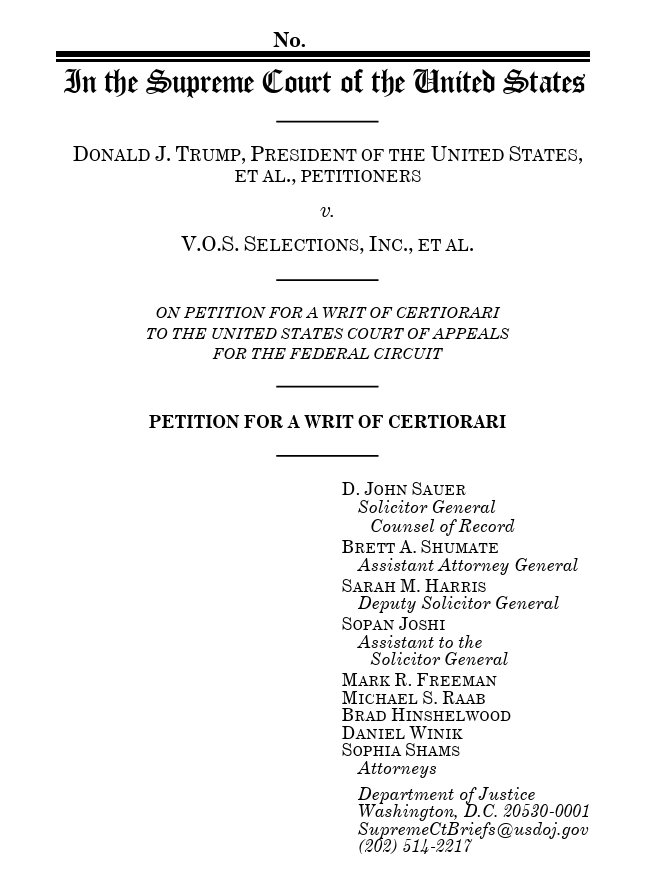
First, they emphasize the gravity of trying to unscramble the tariff egg at this point. Enjoining the tariffs would upend a complex, global framework of intricate trade agreements with untold potential consequences. 2/ 
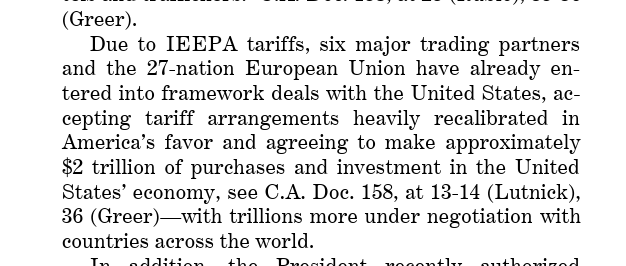
Second, they cite extraordinary declarations filed below from Cabinet Secretaries about the importance of the tariffs to American economic security. I say these are extraordinary because Secretaries rarely personally attest to facts in court. Yet here they have. 3/ 

Third, they emphasize the breadth of the statutory text. I am skeptical about the major questions doctrine here. Foreign affairs has long exuded presidential discretion. And IEEPA confers powers on the President directly rather than an agency head. Both big distinctions. 4/ 
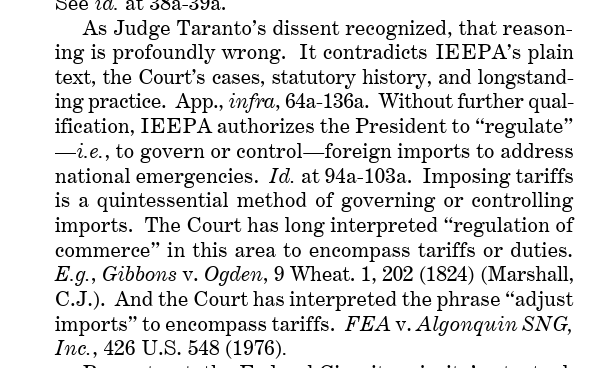
Fourth, they underscore the point above by focusing on the history and emphasizing that Congress *did* intend to confer major powers on the President in IEEPA. In short, this is an elephant in an elephant hole. 5/ 
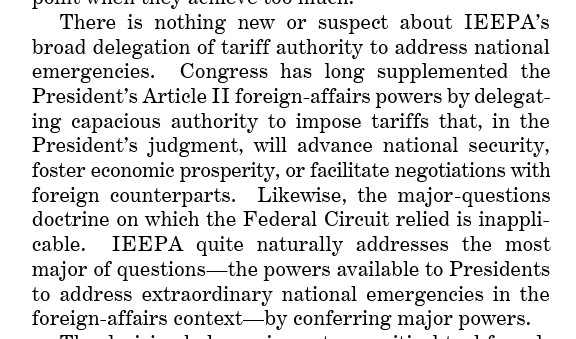
Finally, they emphasize the urgency of quick resolution given that global trade hangs in the balance. Legal uncertainty gives leverage to our foreign counter-parties. To make good deals, the President needs legal certainty. 6/ 
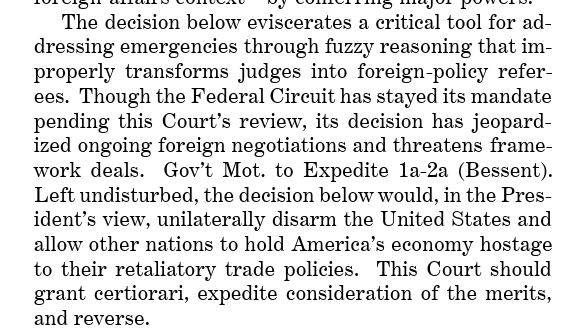
Prediction: the Court will hear the case on a quick timetable, stay any injunction against the tariffs while the case is pending, and ultimately rule for the Administration on the basis of some or all of the above points. We will see soon enough. /end
PS - Here's a link to the filing: supremecourt.gov/DocketPDF/25/2…
• • •
Missing some Tweet in this thread? You can try to
force a refresh



